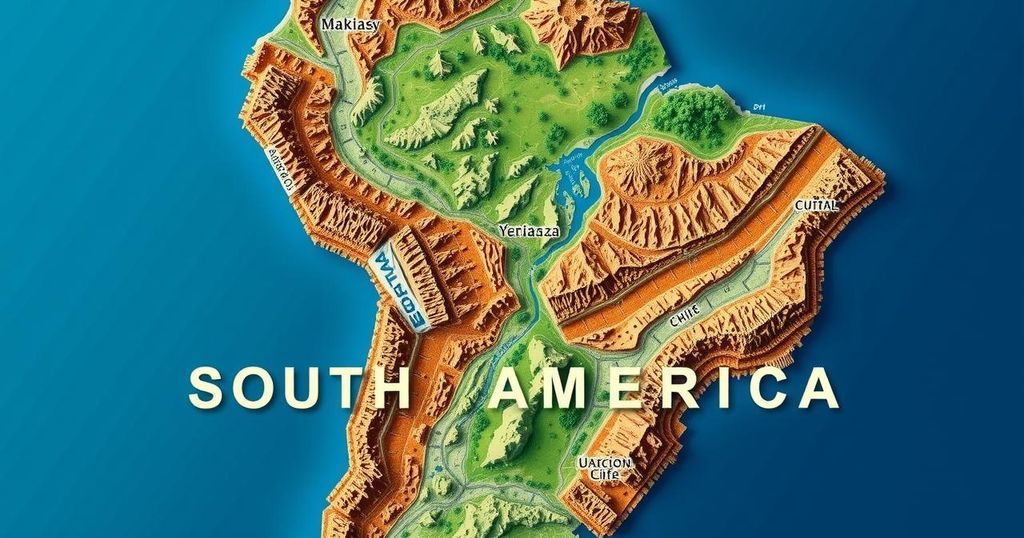Progressive Victory in Uruguay: A Blueprint Against Right-Wing Movements
The Broad Front successfully regained the presidency in Uruguay with Yamandú Orsi defeating Álvaro Delgado in a 52-48 runoff election. This victory is significant given the high approval ratings of outgoing President Luis Lacalle Pou and the Broad Front’s previous losses in rural areas. Orsi’s win may offer strategies for overcoming rising right-wing movements globally.
The recent presidential elections in Uruguay concluded with the progressive Broad Front reclaiming the presidency, as candidate Yamandú Orsi triumphed over conservative Álvaro Delgado by a narrow margin of 52 to 48 percent in a runoff election. This victory comes after the Broad Front suffered setbacks in rural areas during the previous elections, where they lost significant voter support. Mr. Orsi’s win is noteworthy given the popularity of outgoing President Luis Lacalle Pou, whose approval ratings remain high despite being constitutionally barred from re-election due to term limits.
Mr. Orsi’s success in winning back support from the rural electorate is particularly significant at a time when many right-wing movements are gaining traction worldwide by exploiting divisions between rural and urban populations. His victory suggests that the Broad Front’s strategies may offer valuable lessons for other progressive coalitions aiming to overcome right-wing ascendance in their respective regions.
In a broader context, these developments in Uruguay coincide with other significant political happenings in Latin America, including serious allegations of sexual misconduct against Chilean President Gabriel Boric and ongoing discussions about Brazil’s dominance in South American football. These issues illustrate the complex and multifaceted political landscape in the region during this period.
Ultimately, the outcome of this election could serve as a catalyst for progressive movements across Latin America, potentially redefining the dynamics of political power as coalitions adapt to the challenges posed by both local and global political currents.
The political landscape in Latin America is characterized by significant fluctuations, particularly in light of rising right-wing movements, which have often attracted voter support by capitalizing on socio-economic divisions. In Uruguay, the Broad Front, previously dominant between 2004 and 2019, faced challenges in the rural electorate during the last election cycle. The return to power by the Broad Front with Yamandú Orsi at the helm marks a critical moment, as progressive parties seek new strategies to engage voters from various demographic backgrounds and to effectively counteract the influence of right-wing parties.
In conclusion, the victory of Yamandú Orsi and the Broad Front in Uruguay’s recent elections represents a pivotal shift in the political framework of the nation. The strategic focus on rebuilding rural support may provide a model for other leftist movements grappling with the challenge of right-wing ascendancy. As the region grapples with ongoing political controversies and challenges, the implications of this election extend beyond Uruguay, potentially influencing progressive movements throughout Latin America.
Original Source: brazilian.report




Post Comment